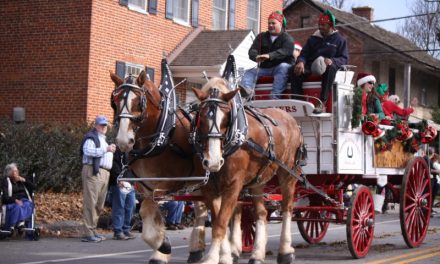 Tips for Buying Horse Properties
Tips for Buying Horse Properties
brought to you by Maryland Horse Council Sponsor Tracy Diamond of The Tracy Diamond Team/eXp Realty, LLC
first published in the March 2022 Equiery
Are you looking for your dream horse property? We asked Maryland Horse Council sponsor (and member) Tracy Diamond of The Tracy Diamond Team/eXp Realty, LLC, to share her tips for buying horse properties in today’s market.
Q. Is there a better time of year to buy a horse property?
A. No. We are in a seller’s market right now so a buyer needs to be open and ready to purchase anytime of year. When the right property comes on the market that works for you, don’t wait!
Q. What is your biggest tip for buyers looking for horse properties?
A. Do not assume the listing information is correct when it comes to things like zoning, easements, preservation restrictions, property use, etc. Be sure to work with your agent to verify all of the listing information.
Q. Is there a difference between buying a horse property for business versus private use?
A. Yes. This goes back to verifying the listing information. Be sure to check that the permitted uses for the property matches what you intend to use that property for. Also beware that just because a property is being used for one activity by the current owner does not mean that a new owner can use the property for the same activity. Again, check the property’s use and zoning rules.
Q. When should a buyer meet with a lender during the buying process?
A. It is never too soon to meet with a lender. Lenders will walk a buyer through correcting any credit issues, making sure tax returns correctly reflect current income, and other items that sometimes can take several months to sort out. You want to be sure your finances are in place before shopping.
Also, I recommend using a lender that specializes in agricultural purchases because they will be able to walk you through the ag specific process.
Q. What should a buyer do if the appraised value of the horse property does not match the agreed upon contract price?
A. The appraisal process comes after the buyer and seller have an accepted contract. The appraisal is required when a buyer is getting financing. If the appraisal value does not match what is in the contract, then the buyer and seller may need to renegotiate the contracted price. Lenders will want the appraisal to be at or above the contracted price.
Q. Should a buyer use a realtor with horse knowledge to act as their agent?
A. Absolutely! As a horse person myself, I know what a property needs to have for horses. Horse people who are also realtors can help identify properties in advance that may or may not work for horses just by looking at things like topography maps, easements, and property use. We are able to do a lot of the legwork for the buyer before they ever set foot on a potential property.
Realtors who are horse people can also help after the property purchase is made by recommending things like manure haulers, fencing installers, and where to buy feed locally, etc. We become a resource during the whole process.
Stay tuned for “Tips for Selling Horse Properties”!











